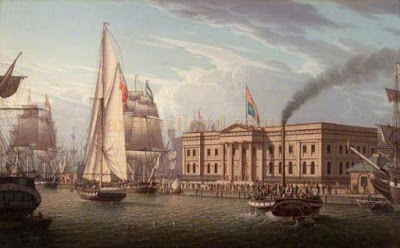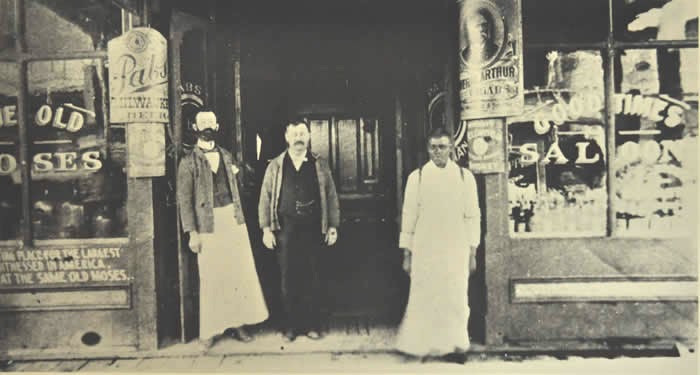Patsy Lenen, Port Townsend, Washington

A sailor from boyhood in his native Scotland, Patsy Lenen in the early 1870s fetched up in busy seaside Port Townsend, Washington. On its main wharf Lenen founded a saloon that for many years was a favorite hangout for thirsty mariners in a town where “shangaiing” hapless men for sea duty was a common and accepted practice. The son of Patrick and Mary Mekin Linnin. Patsy (probably a nickname for Patrick) was born in Greenock in March, 1846, a major seaport off the southwest coast of Scotland at the point where the River Clyde empties into an inlet of the Atlantic Ocean. Shown here as it looked in the mid-19th Century with a mix of sail and steam powered vessels, Greenock was bustling port with a large customs house. It was almost pre-ordained that youths like Lenen would go to sea, many forgoing an education. Patsy was among them and remained illiterate throughout his life. According to his obituary, “He deeply deplored his lack of schooling and on one occasion


